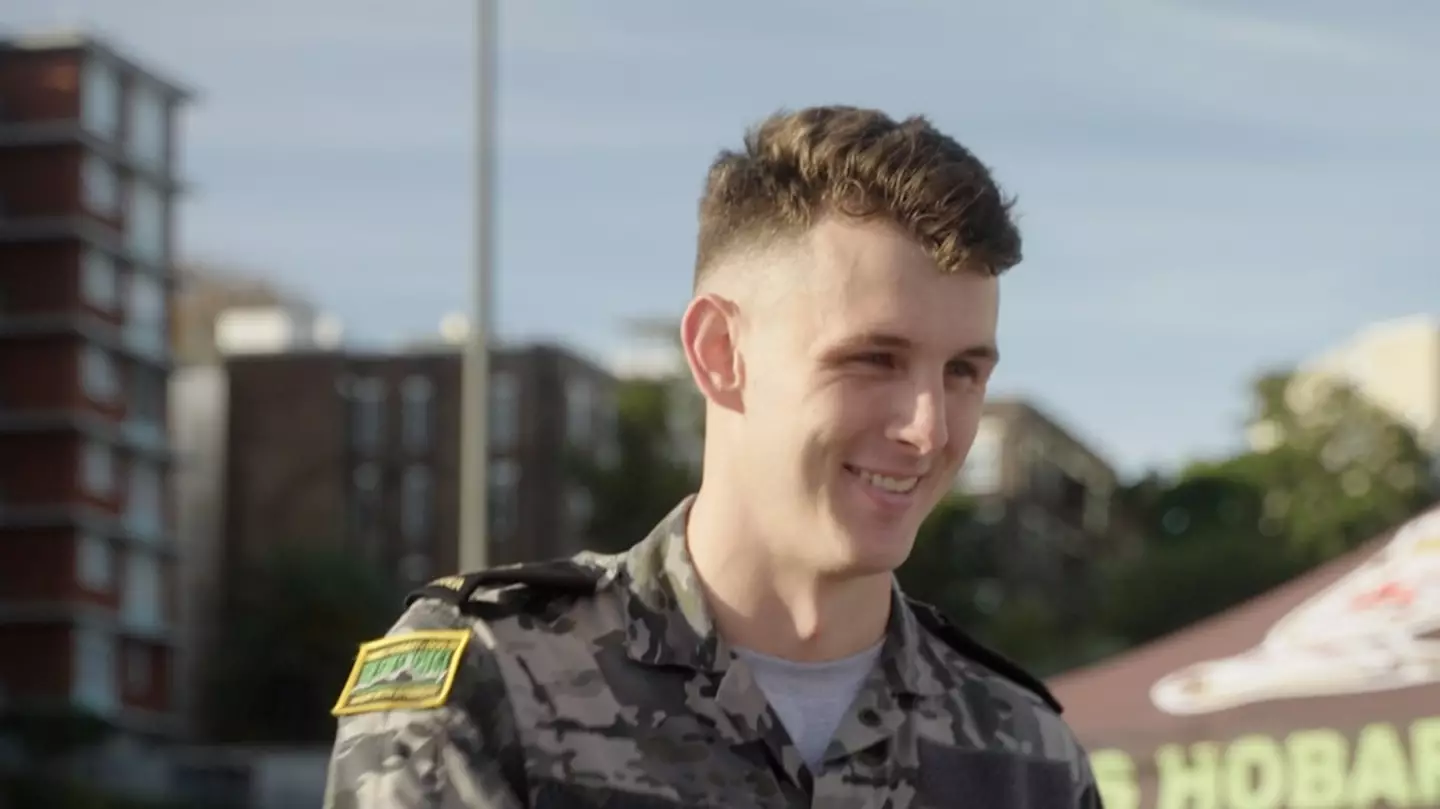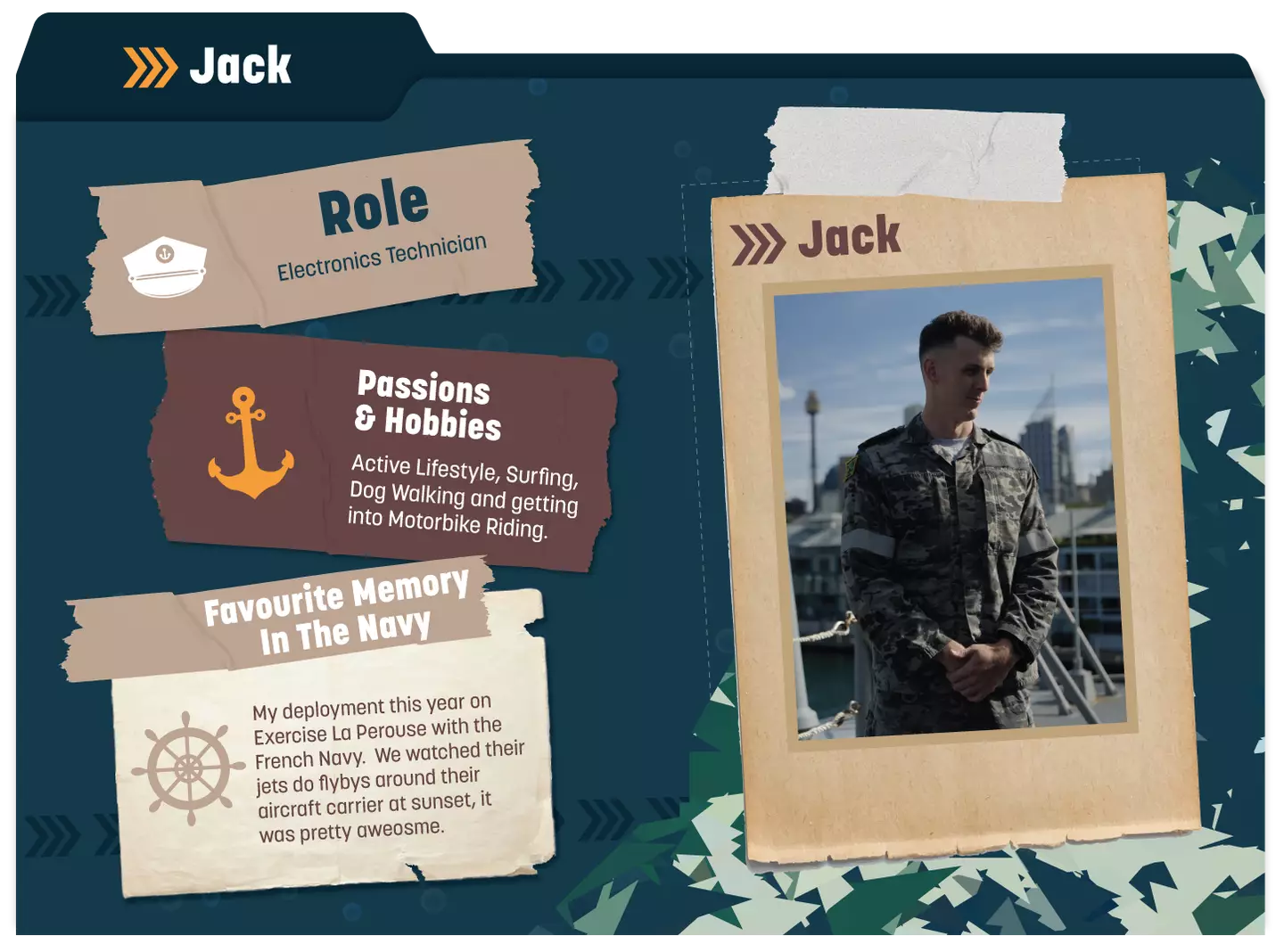
In an era defined by advanced technology, you can only imagine how high-tech the machinery of our Navy is. The operational readiness of that machinery completely hinges on the expertise of highly skilled technicians — and they need to be ready for anything.
We spoke to Jack, an Electronics Technician specialising in sensors within the Royal Australian Navy. His journey into military service, which began after he left his university business degree, has taken him to places he never imagined, and ensured that he has a sense of community and mateship forever.

Now, to put it simply — Jack's routine at sea is a testament to naval life and the important nature of his role. His day typically commences with an early breakfast, followed by physical training or a gym session — it all helps with the work/life balance he needs so he can handle whatever his day throws at him.
"After that, we usually have a morning [meeting] with my work team to discuss the workloads for that day," he says.
The core of his work involves meticulous preventative maintenance, encompassing cleaning, testing, and, crucially, the intricate process of troubleshooting complex electronic systems.
"I like solving problems as they appear," Jack says.
"It feels really good to fix equipment in a timely fashion and it feels rewarding to do the job well."
The average person might not have a full grasp on what an electronics technician for the navy does, or how vital a role it is, but Jack’s role means he’s responsible for critical sensor systems, and his work directly influences a warship's ability to operate and navigate effectively.
"A lot of people don't realise that your line of work directly affects how the ship operates and its capabilities," he points out. Without the meticulous maintenance of combat and navigation systems, he says a warship would just be “another ship in the ocean."
Jack recounts a particularly challenging experience, where he identified a problem on some vital equipment, which needed to be fixed in a timely fashion.
“My team banded together with our civilian contractors and we were able to rectify the problem and the ship was able to sail on time — that was a pretty memorable challenge.”
Beyond the operational demands at sea, Jack's career has been enriched by extraordinary opportunities for international training and unique experiences. He reveals that a significant portion of their specialised training occurs abroad, with much happening in America. He has spent nearly a year across two extended periods in the United States, thanks to the specific systems he works on, meaning he could learn alongside his counterparts in the U.S. Navy.
Among his most cherished memories is witnessing a spectacular fly-by — when aircraft fly in super close proximity to the ship — from a French aircraft carrier during an exercise.
"[It was] as the sun was setting and that was pretty awesome," he says, making it seem like something plucked straight from a movie. On top of that, with deployments to diverse locations such as Southeast Asia, Hawaii, Guam, and New Caledonia, Jack’s been able to see parts of the world he admits he “never would have gone to” by himself.
In a profession demanding continuous attentiveness, Jack prioritises mental and physical well-being. Regular exercise, often before his workday begins, is crucial for him, as it "sharpens me, obviously physically, but also gives me mentally an edge." He’s also learned specific techniques since joining the Navy, such as box breathing which a Buddhist chaplain on board the ship taught him to help cope in high-pressure situations.
"It definitely helps you relax yourself,” he says, “and be able to think clearly.”
One thing that surprised Jack the most about life in the Navy is the community you build from it — and he’s more than thankful. The "communal support and activities", as he puts it, offered by the Navy, include organised sports days, surf and ski camps, alongside a wide array of support services.
“Everyone on the ship has a shared purpose,” Jack says.
“You learn to trust others and trust yourself with multimillion dollar equipment that is at the cutting edge of our defence weaponry. Accountability becomes second nature.
“You just learn to trust others basically with your life. And, of course, that creates a close knit environment.”

